Los Angeles Considers ‘Democracy Vouchers’ to Expand Engagement in City Elections
Councilmember Nithya Raman announced that a study on establishing a "democracy voucher" program for city elections will arrive in January.
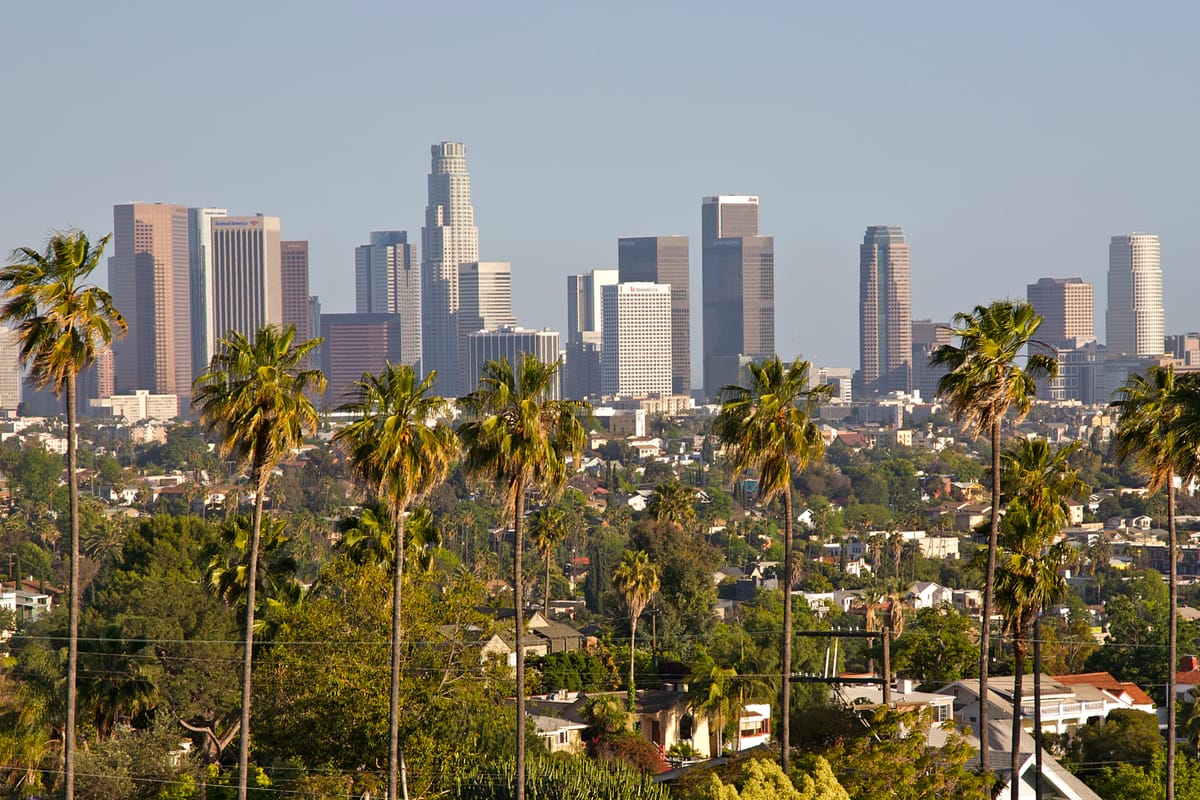
In June, the Los Angeles City Council unanimously approved a motion to study the feasibility of implementing a type of public campaign financing called “democracy vouchers” that could boost engagement in local elections. The city’s chief legislative analyst and the Ethics Commission were tasked with issuing recommendations for a program that would give every Los Angeles resident a set of vouchers that could be donated to participating candidates for city office, who could then redeem them for campaign funding.
According to the motion’s lead presenter, Councilmember Nithya Raman, the report will be released in January.
The motion instructed the officials to issue recommendations for a voucher system that could increase the share of donations coming from L.A. city residents and make campaign finance more equitable by boosting campaign donations from ZIP codes with a high percentage of people of color, among other things. It requested a range of options for requirements for participating candidates and the appropriate budget size and funding options.
Raman’s motion highlighted a study from Los Angeles for Democracy Vouchers that found that the city’s political donors are starkly unrepresentative of the city’s diverse racial and socioeconomic makeup. According to the study, just under half of contributions in the 2020 City Council races came from people who live in Los Angeles—more money came from people outside the city and special interests. More than a third of campaign contributions in 2020, a plurality of 36%, came from donors outside of L.A. City.
The motion called for the report to include an examination of how a democracy voucher program could operate alongside the city’s existing public financing system, a small-donor matching system that has been in place for decades. Under the current L.A. program, candidates who qualify and agree to spending limits can have donations matched at a 6-1 ratio—last year, up to $114 for City Council and $214 for citywide candidates.
Groups supporting the democracy voucher study, and the Council motion that kicked it off, point out that while the matching system has served as a step toward empowering grassroots candidates, not everyone can afford $100 or $200 to donate to a political hopeful. Data on who donates in Los Angeles elections shows the disparities. In a March report, Los Angeles for Democracy Vouchers analyzed how itemized donations, those above $100, to City Council candidates in 2020 came heavily from wealthier neighborhoods with more white residents, even though Los Angeles City is 70% people of color: “All told, majority white ZIP codes gave 2.6 times as much per person as majority people of color ZIP codes.”
"If we have democracy vouchers, people will have a stake in the system and an incentive to say, 'I have $100—who is the candidate who is going to come speak with me, hear my concerns, and include me in the process.'" — Aura Vasquez, advisor, Los Angeles for Democracy Vouchers
In an online briefing hosted by Los Angeles for Democracy Vouchers earlier this month, Councilmember Raman said that while L.A.’s existing matching system has made a difference for candidates in being able to run competitively, the municipal voters determining local elections were still less representative than the city as a whole. “Vouchers make it into a shared space of who votes and who donates,” Raman said. Los Angeles for Democracy Vouchers is a group of community organizers and researchers working since 2021 in advocacy for a voucher system that would give every resident the ability to donate to city candidates. The briefing earlier this month was co-hosted by groups including the California Clean Money Campaign, League of Women Voters of Los Angeles, and the environmentalist Neighborhood Council Sustainability Alliance.
Los Angeles for Democracy Vouchers put together more research in a September report, titled Exploring Reform, that presented options for a voucher program’s rules and implementation, building in part on the experience of Seattle, where a democracy voucher system has grown in use over several cycles. In Seattle, four vouchers worth $25 apiece are issued to every resident, which can be given to candidates in paper form, assigned digitally through an online portal, or signed-over to a campaign, with an independent city commission checking the validity of voters’ signatures, administering the program, and posting the voucher program’s data openly online. In November 2022, voters in Oakland decided with 74% in favor to create a version in their city, dubbed “democracy dollars,” modeled closely off the Seattle system and designed to curb the power of wealthy donors. After municipal budget cuts in Oakland prompted by declines in tax revenue, the democracy dollars program will prepare and launch in the 2026 cycle.
Los Angeles for Democracy Vouchers also noted in its briefing that the city’s matching program only provides a portion of what city candidates need to compete, leaving candidates to still spend time fundraising when they could be reaching out to voters. To address this gap, the group’s report also modeled a new option, one that the Council motion directed the officials to study: the possibility of creating a hybrid public financing program, where raising a certain amount of funds through democracy vouchers opens up grants of campaign funding. Such a program would enable qualifying candidates to run with full public financing, an option that is provided to state candidates in Maine, Massachusetts, and Arizona.
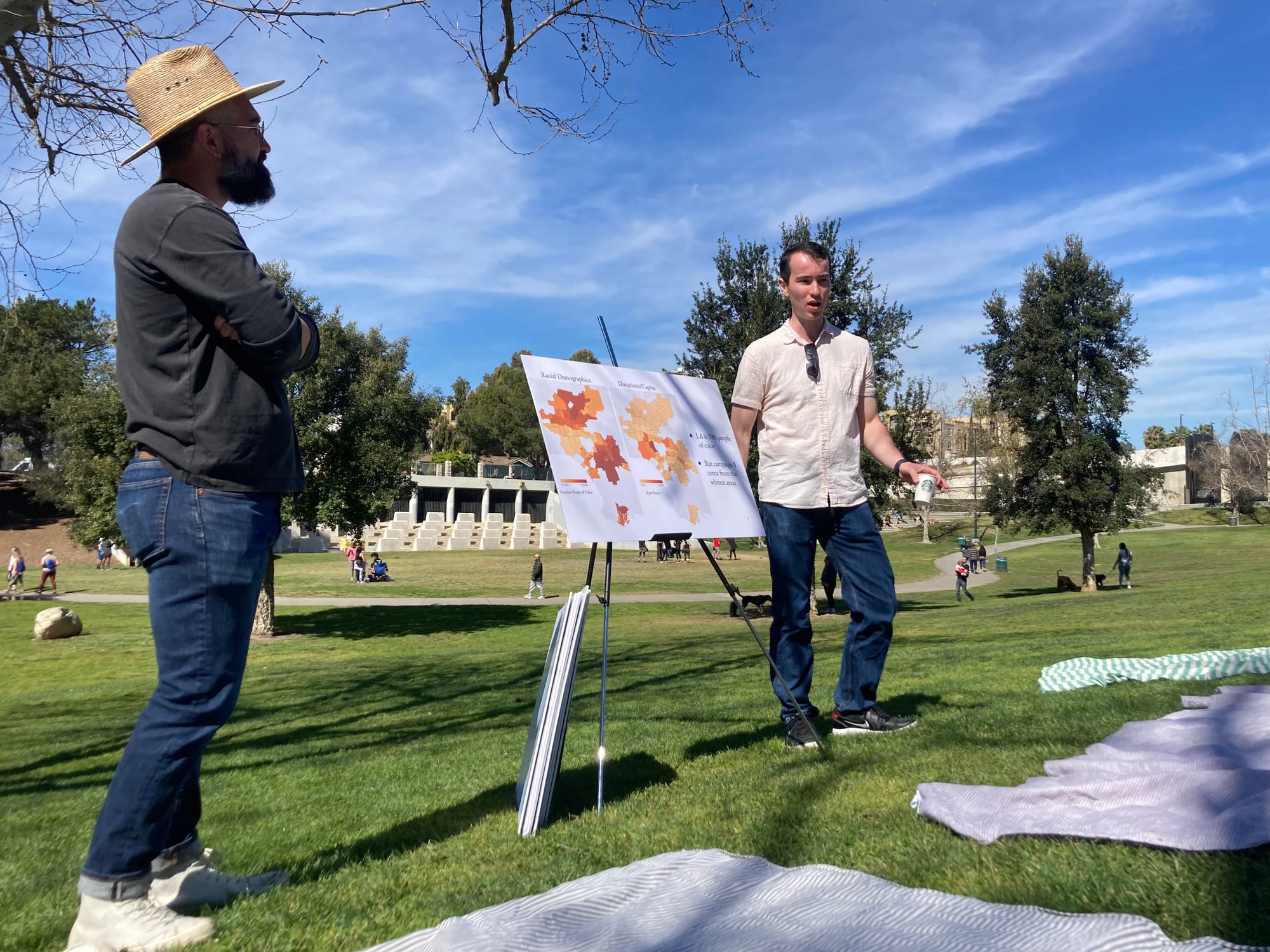
Mike Draskovic of Los Angeles for Democracy Vouchers, who co-authored the group’s latest report with researcher Tom Latkowski, told Sludge that the source of campaign money in city elections matters in who can run for office.
“Democracy vouchers, as we’ve seen in Seattle, empower all residents to participate in the program, and that’s especially important in L.A., where working-class and communities of color have been largely excluded from the campaign finance system,” Draskovic said. “Democracy vouchers change the system by making it so no one needs disposable income to contribute to a campaign. It also allows more people to run for office, especially from underrepresented backgrounds, and as we’ve seen in Seattle, this has led to higher voter participation and civic engagement rates. These are all things L.A. would benefit from through a democracy voucher program.”
A report released last year by researchers Dr. Jen Heerwig of Stony Brook University and Brian J. McCabe of Georgetown University found that the Seattle voucher program increased the representativeness of the city’s donor pool in terms of age, race, and income. In the 2021 cycle, participation especially increased among people of color, younger, and lower-income residents. In this year’s Seattle City Council elections, voucher participation held steady with the comparable 2019 cycle. Seattle’s voucher participation rate doubled from 2017 to 2019, city data showed, with 7% of city residents giving a voucher to a candidate, a small-donor rate far higher than any other U.S. city.
Latkowski, who authored a book in 2021 about the effects of Seattle’s democracy vouchers, said, “We’ve seen democracy vouchers work in Seattle, and we’ve modeled out how they can work in L.A. We’ve found several benefits: rising participation rates; a smaller share of money coming from special interests and outside L.A.; and we’ve found that democracy vouchers would reduce the racial donation gap.
“With democracy vouchers, you no longer need a wealthy network of donors backing you,” Latkowski said, “you need a network of regular people supporting you, is all it takes with democracy vouchers to fund a competitive campaign.”
In the briefing, Draskovic addressed the next steps for the voucher proposal, after the city's report is reviewed. He said that, as a potential change to the City Charter, a voucher program would require approval by voters as a charter amendment. There are several options for how an amendment can be placed in front of voters: a referral by a majority vote of the City Council, a ballot initiative via a petition signed by 15% of the city’s registered voters, or a charter reform commission, a body whose members could be elected by the public or appointed by council members.
The Los Angeles 2022 elections, which included a high-profile race for mayor, saw $158.7 million in total contributions, according to the report Empowering Los Angeles, written with community organizer José Del Río. This figure included $129.7 million in the mayoral race, driven by a billionaire self-funding candidate. The average donation from someone living in a majority-white ZIP code, Los Angeles for Democracy Vouchers found, was nearly six times that of a donation from a person in a ZIP code where residents are predominantly people of color.
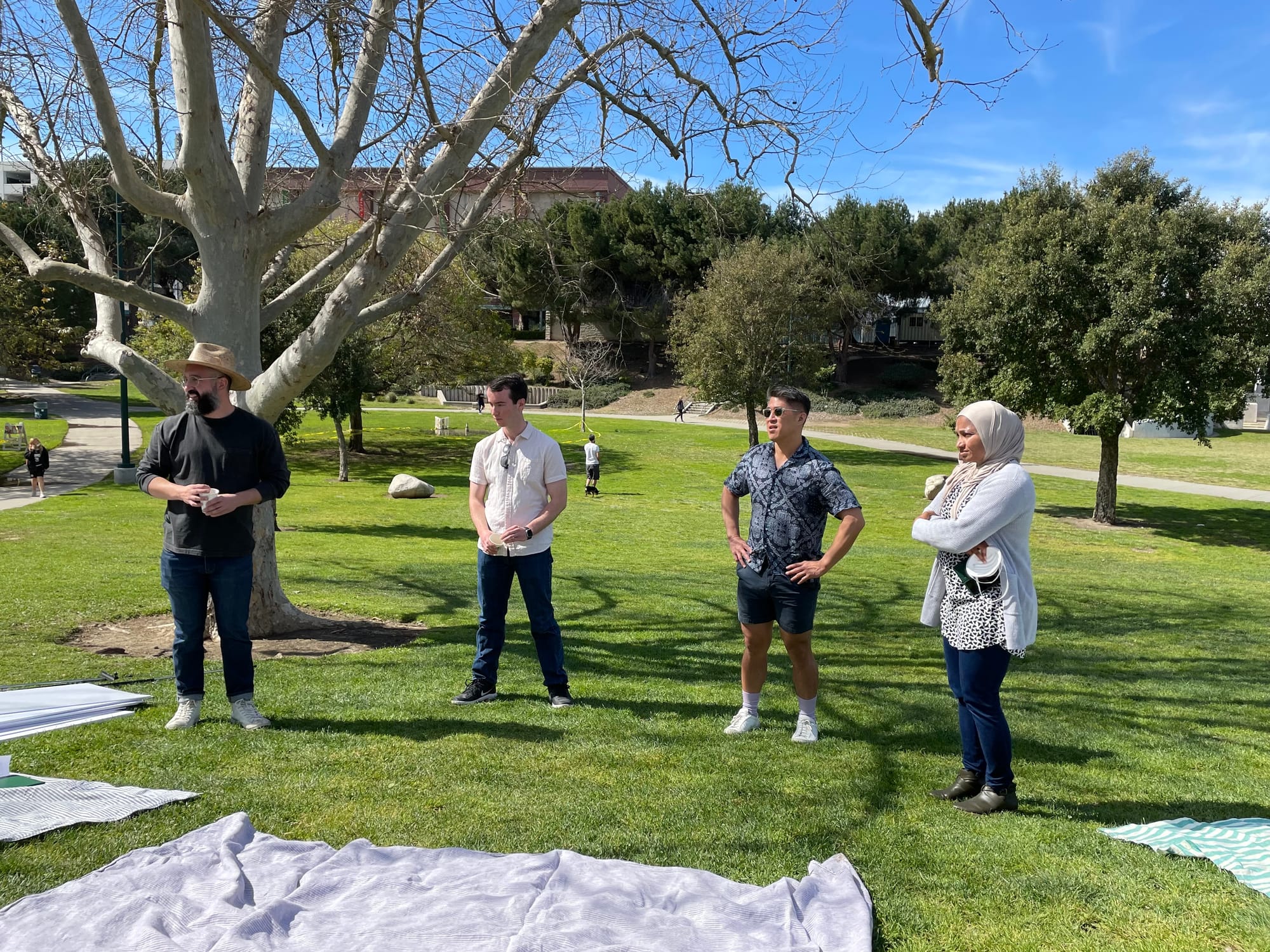
The voucher group’s recent report estimated the cost of a menu of options, based on Los Angeles candidates opting-in to matching funds from 2015-2023 and participation rates from Seattle’s system. They estimate that the democracy voucher system citywide could run from $10 million - $14 million a year, and a system of full public financing consisting of democracy vouchers and grants could cost between $14 million - $20 million a year. In a complementary model, the California Clean Money Campaign’s Executive Director Trent Lange projected the cost under different assumptions and found that citywide vouchers could run from $10 million - $12 million a year, and full public financing from $12 million - $15 million a year. In its community updates, Los Angeles for Democracy Vouchers has underscored that these amounts would be under 0.1% of L.A.’s overall expense budget, and would cover races for mayor, city attorney, controller, and city council. In 2024, the city has budgeted $4 million for the matching program, according to data from the Ethics Commission.
Aura Vasquez, an advisor to Los Angeles for Democracy Vouchers and a candidate for City Council in District 10, told Sludge that her experience with fundraising in her previous campaign sparked her support for a voucher system.
“I ran in 2020, and raising those dollars was really difficult, especially when you have incumbents who are establishment candidates that have a big donor infrastructure to support them,” said Vasquez. “For people like me, an Afro-Latina from Colombia, an immigrant, I didn’t have a network that could help me raise campaign funds. So democracy vouchers become a really interesting way to level the playing field, a policy that will help women and people of color compete in the political process that is oftentimes dictated by money.”
Vasquez is raising small-dollar donations, including through social media posts, to unlock the matching funds, but sees a transformative potential in a voucher system.
“As a resident and a voter, in a time when we see the influence of money in politics, vouchers offer communities the potential to get on the top of the list in speaking with elected officials, so that we can have an electoral process where local people are included,” she said. "We’re not waiting for big donors and big money to come from elsewhere and influence our political process.”
In her 2020 bid for city council, Vasquez was one of several candidates in the race who rejected donations from fossil fuel interests and executives, a pledge that the eventual winner, former county supervisor Mark Ridley-Thomas, declined to join.
This week, the Council approved a 2024 ballot measure that would establish an independent redistricting committee, after a recording leaked anonymously on Reddit in September 2022 revealed council members discussing ways to favorably gerrymander their districts. In a letter last month, Los Angeles for Democracy Vouchers and others including the social justice group West Valley People’s Alliance called on the City Council to empower the Ethics Commission and pursue greater government reforms before the next redistricting process.

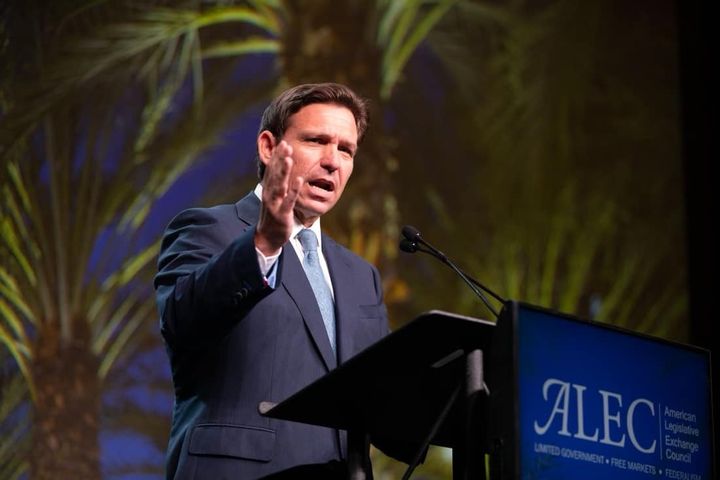
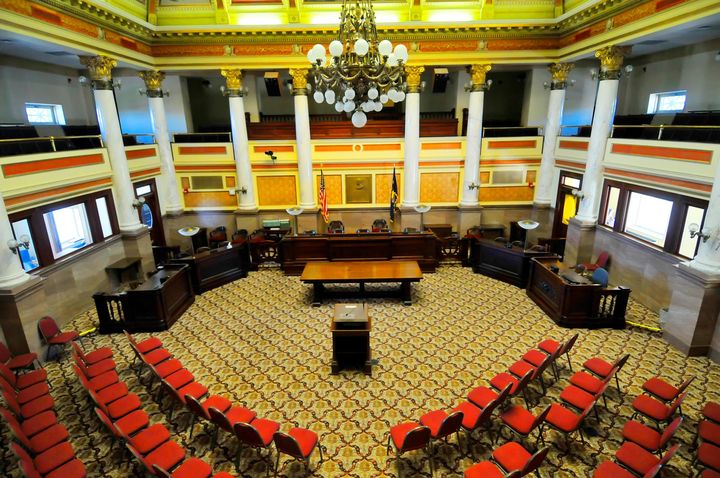
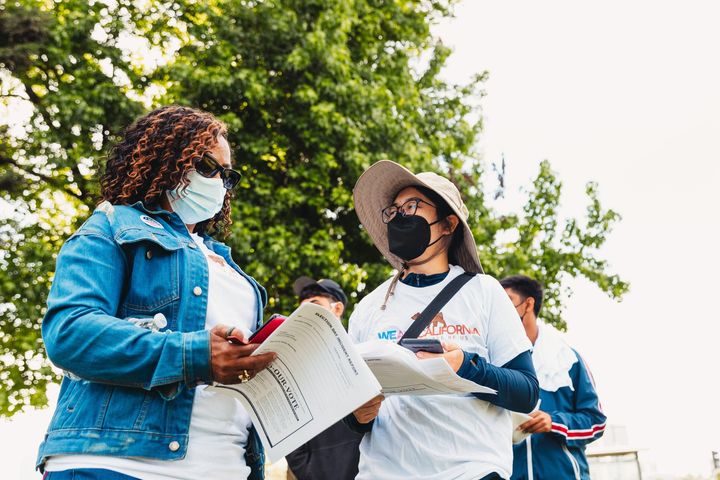
Comments ()